Interview with Moza Alhajri, Rising Star of Debate
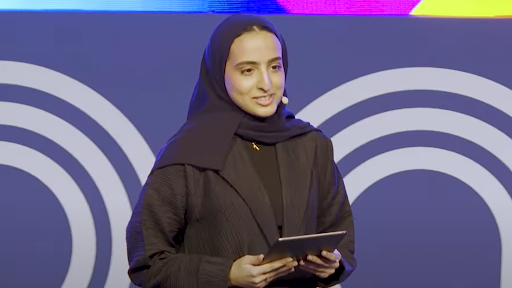
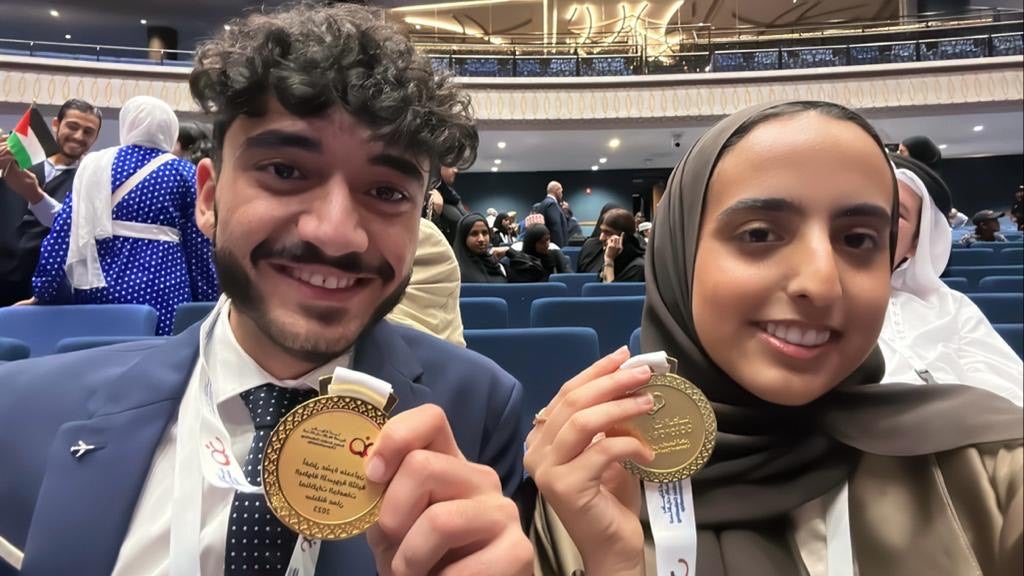
International Economics major Moza Alhajri (SFS’26) is not just passionate about arguing, she excels at it. Competing at the 2nd Asian Arabic Debating Championship held in Oman, Moza emerged victorious, winning Best Speaker and helping the GU-Q Arabic Debate Team reach the top four winner’s circle.
Her remarkable achievements extend beyond personal triumphs. An advocate for a number of critical issues impacting her community in Qatar, Moza is also actively helping to shape the future of debate in Qatar and across the Arabic-speaking world. Moza’s involvement with the Qatar National Debate team in the past, coupled with her current role as an ambassador for QatarDebate (QD)—an organization under the Qatar Foundation (QF)—has positioned her as a rising star in the field.
Most recently, she was appointed as the Master of Ceremonies and moderator for the opening ceremony of the inaugural International Conference on Debate and Dialogue (ICDD), an event organized by QatarDebate and attended by QF Vice-Chairperson and CEO H.E. Sheikha Hind bint Hamad Al-Thani and H.E. Lolwah bint Rashid Al Khater, Minister of State for International Cooperation and a member of the Joint Advisory Board at GU-Q. The two-day conference brought together the global debate community of researchers, academics, and practitioners to promote the development of knowledge production in the fields of debate, dialogue, argumentation and interrelated disciplines.
We had the privilege of interviewing Moza to delve deeper into her remarkable international performance on the global stage and to gain insight into her perspective on the role of debate in public life.
How did you become involved with the First International Conference on Debate and Dialogue?
I have been involved with the conference from the very beginning with the brainstorming session that took place earlier this year. After that, I was involved in the planning, drafting, and content development, as well as communication with the impressive roster of panelists and participants who attended.
What were your key responsibilities, and how did you prepare for this role?
As the MC and moderator of the opening ceremony of the ICDD, I was acutely aware that I would be the first impression the audience would get of a very new and different initiative by QD, which is expanding beyond competitive championships to organizing conferences that study the impact of competitive debate tournaments and examine and evaluate them. I drafted my opening remarks to reflect that, and to highlight the importance of studying and researching dialogue in today’s world of conflict.
Can you share highlights of your panel?
In the panel discussion during the opening ceremony I moderated a dialogue between the leaders of some of the most important debate institutes worldwide. I asked the panelists about the purpose behind their work and their plans for expanding their impact to wider regions and institutionalizing the practice of debate. An overarching theme was the use of debate tournaments and debate education as tools to foster fruitful discussion and tolerance in popular culture.
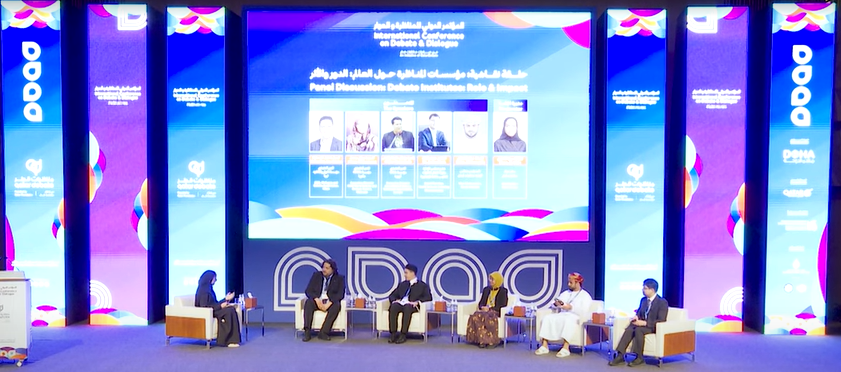
What was your favorite topic covered at the conference?
The theme that resonated with me the most was Debate in Islamic Heritage, because it was very eye-opening, especially after many years of practicing the competitive debate format which in many senses is a Western format. I think it is important to look back at our tradition of dialogue here in the Muslim World and to study it to be able to adopt the values it stemmed from as well as see a different point of view from which we can evaluate and possibly challenge the current competitive debate format.
This was a major event, attended by many high-ranking officials in Qatar and watched by a global audience on a live simulcast. What challenges did you encounter on the stage, and how did you address them?
Discussing multiple themes with five speakers all from leading institutes with a great deal of experience and importance definitely needed rigorous preparation, which included researching their background and previous work, as well as many brainstorming sessions with QD’s team to get feedback and tweak talking points and themes.
Another key aspect of the panel was that it was happening simultaneously in both English and Arabic, depending on the language of the panelist. That meant I had to smoothly transition between both languages while continuing the same train of thought, definitely something that’s easier said than done.
You have competed as a debater on Qatar’s national Arabic debate team, on the national English debate team, and now on the GU-Q Arabic debate team. Did that help you manage the bilingual demands of your role?
Yes, arguing in two languages has always been a part of my journey in debating. However, even though in day-to-today conversations with my friends I always switch between English and Arabic, it was different in the more formal setting of a conference. So It was a new challenge for me, and I gained a lot of skills through the experience.
You’ve been active in debate since secondary school. How has your time at GU-Q further influenced your interest and experiences in the field?
In my first year at GU-Q, I was offered multiple public speaking opportunities that allowed me to practice speaking in front of large crowds, which is very different from competing in debate tournaments in the presence of your peers. I gave keynote speeches on behalf of Qatar Foundation at the TEDinArabic regional event in Morocco, and at the TEDinArabic Summit in Doha earlier this year. I also moderated a panel at Qatar Museums featuring H.E. Sheikha al-Mayassa, and a panel with Doha Film Institute, featuring famed footballer David Beckham. Additionally, I recently moderated a forum on youth at the Fifth United Nations Conference on the Least Developed Countries (LDC5) hosted by Qatar.
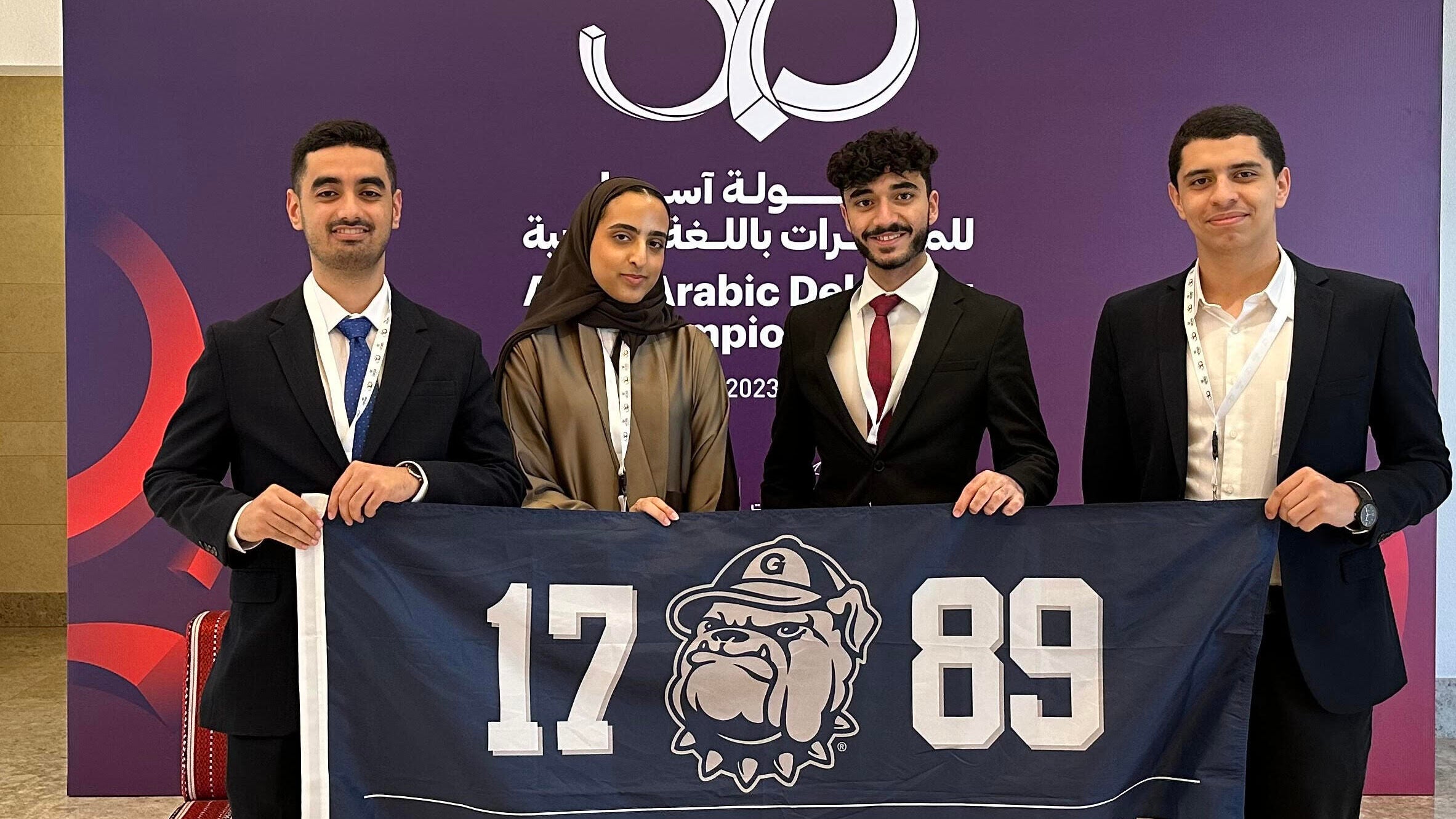
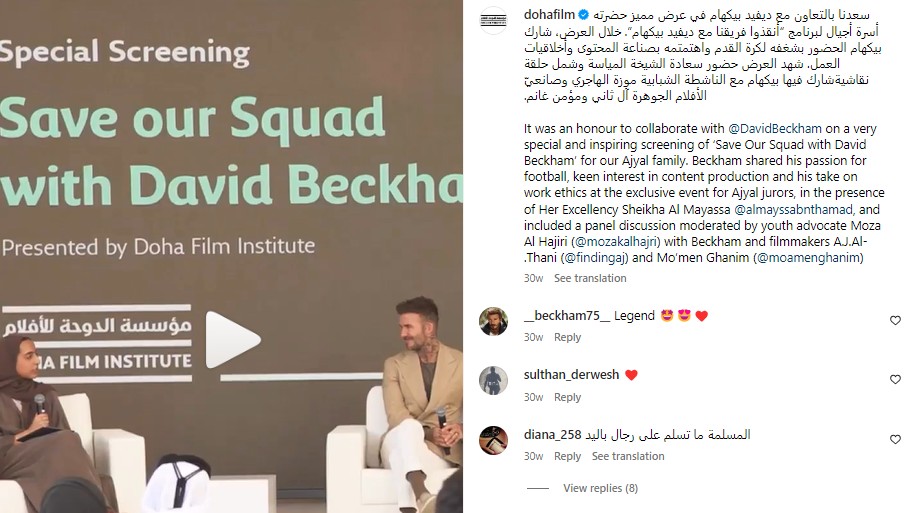
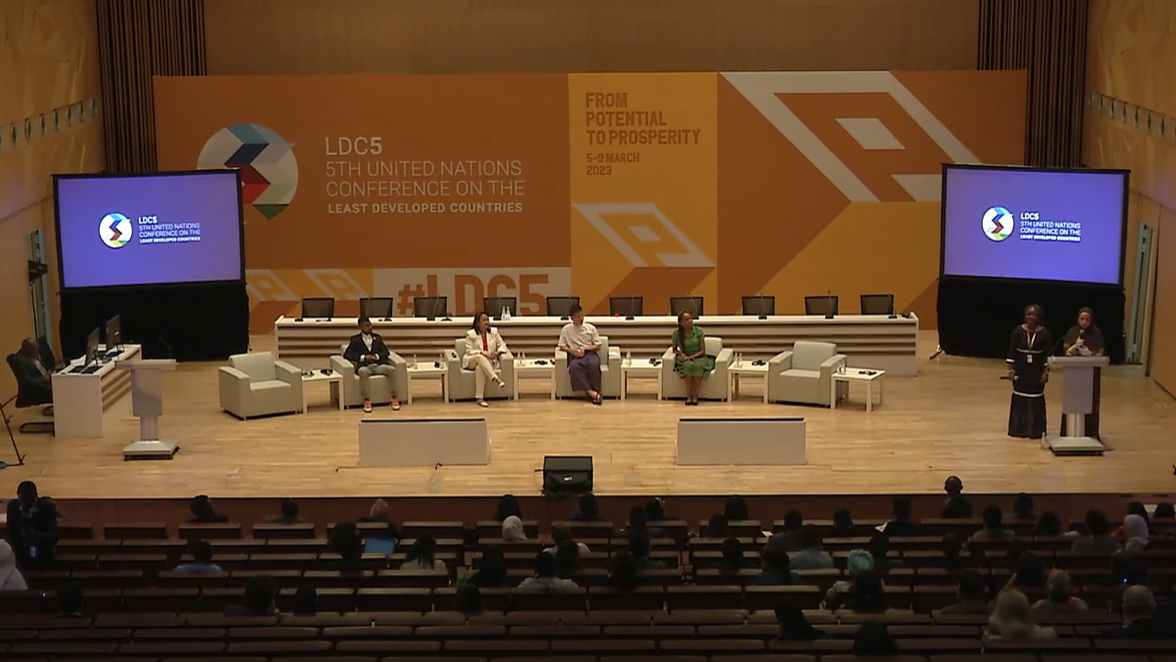
How do you believe university students, in particular Arabic-speaking students, contribute to fostering personal values and advancing knowledge production in related fields?
Qatar is known for facilitating international dialogue. And as a student of foreign service at Georgetown in Qatar, I look forward to a future where I use my debate knowledge and skills, alongside my preparation in international affairs, to be a part of Qatar’s efforts in facilitating international dialogue and negotiation for a peaceful future.
